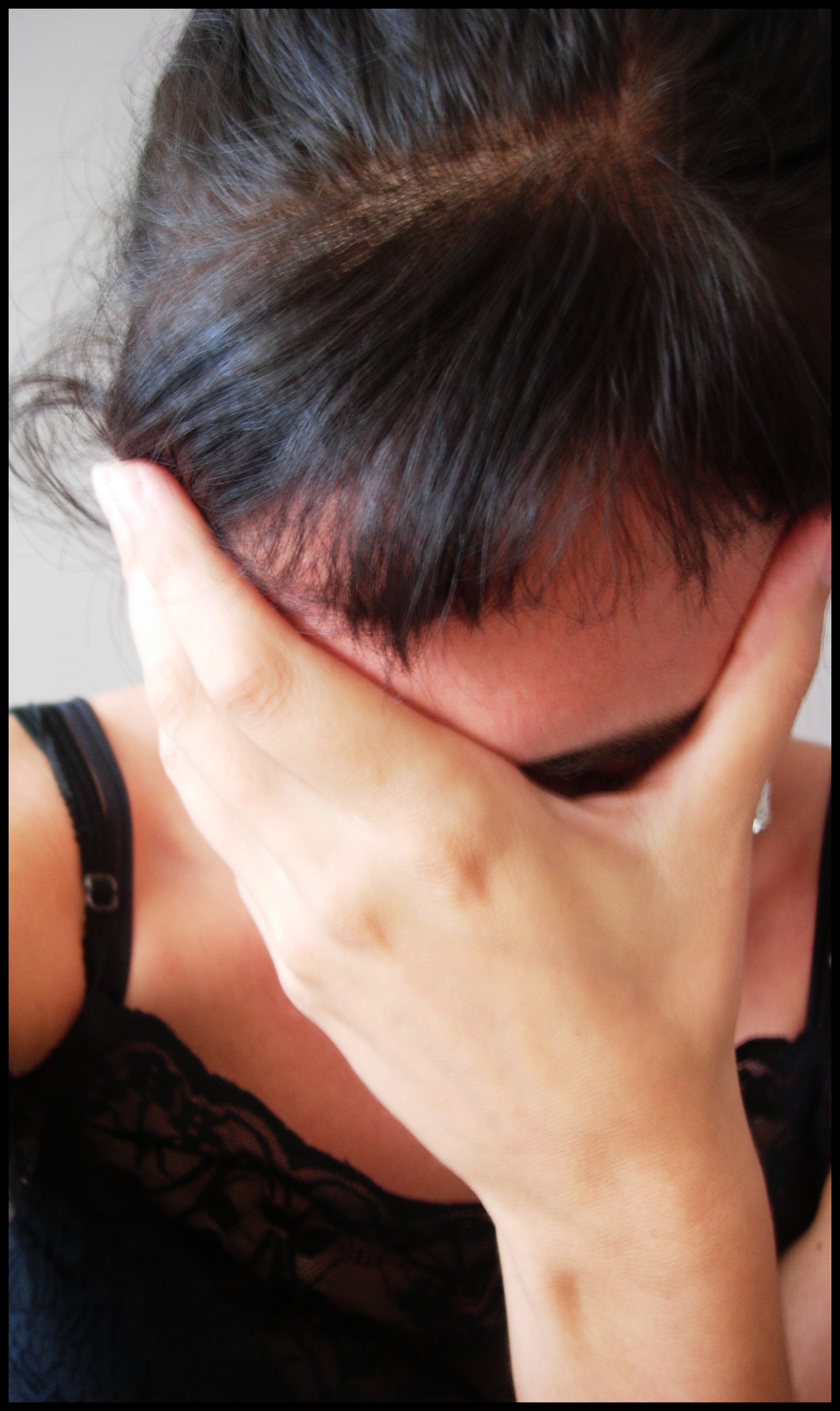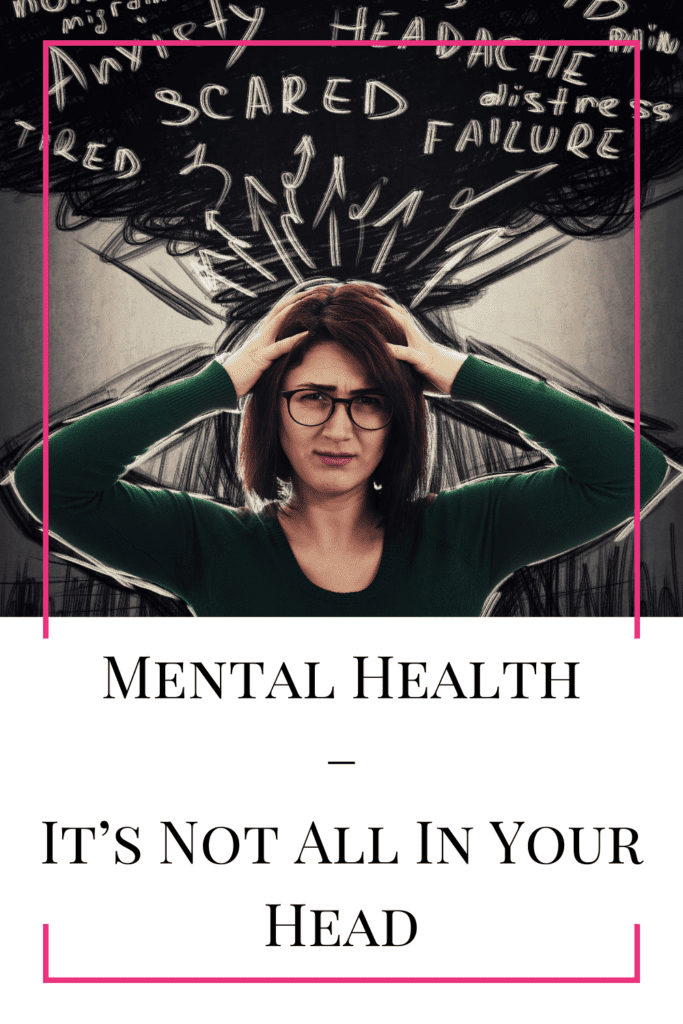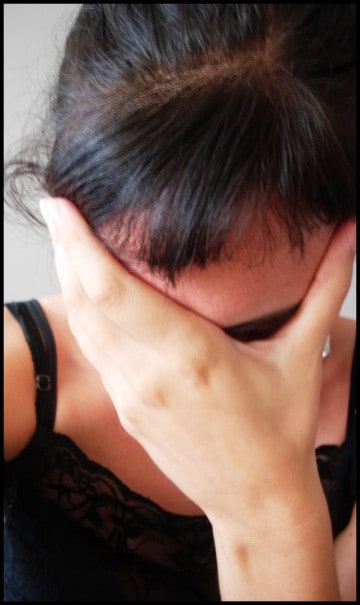 Deepak Chopra describes anxiety perfectly when he says, “The best use of imagination is creativity. The worst use of imagination is anxiety.” Nothing could be closer to the truth. When anxiety or depression creep in, there are no boundaries to where our minds will go.
Deepak Chopra describes anxiety perfectly when he says, “The best use of imagination is creativity. The worst use of imagination is anxiety.” Nothing could be closer to the truth. When anxiety or depression creep in, there are no boundaries to where our minds will go.
When I look back on past worries, I can now kindly laugh at just how detailed and derailed my foreboding went. It’s easy to look back and have perspective–even a sense of humour, but when we are caught in the quicksand of our thinking–the merry-go-round of catastrophic thinking seems perfectly rational. Our thoughts seem to hold ultimate authority and the by-product of our thoughts–fear–becomes crippling. Instead of making decisions from what we want, what we believe in or who we want to become, fear dictates our every move.
If I have one pet peeve about recovery from any ailment or illness, it is those who claim a miraculous recovery. I do believe this can happen, but I think for most of us transformation is a ‘one step forward, two steps backward’ journey; we are not helping anyone by pretending it’s an easy road out of Hell or that it doesn’t require consistent, committed effort. Of course I still have days where I go down those paths or more correctly off that cliff. However, as my physical health improved, an almost immediate side effect seemed to be clearer, less reactive thinking and a generally more stable mood. While not a cure-all, I was aghast at just how profoundly my diet affected my mental health–for better or for worse. My mother was right, “You are what you eat.”
Mental health issues such as depression and anxiety have been increasing significantly in recent decades. Health experts and psychiatrists have various explanations for why the developed world specifically is seeing such a marked increase in everything from mental illness to suicide. If you research the issue, it becomes evident very quickly that mental illness, like cancer has multiple causes. Chronic stress, lack of sleep, loneliness and diet are only a few of the aggravating factors.
Having dealt with my own share of anxiety, panic attacks and even depression, I have come to learn that to treat or manage anxiety or depression, one has to take a holistic approach. While not an expert on mental illness, I do know that diet and basic lifestyle changes can mean the difference between surviving or thriving. I have experienced the shift first hand.Anxiety and depression is often the accumulation of unaddressed emotional traumas or wounds, negative thought patterns that have become so habitual they become automatic, as well as lifestyle choices that further exhaust, deplete and doom us to a mediocre life at best.
Many people are not even aware that there is another way of being. I had lived with my racing thoughts for so long that I thought they were normal. In the coming weeks I will address the various layers of anxiety and depression and some habits and tools that have proven to be both restorative and healing for many sufferers.
While the most obvious cause of depression and anxiety is likely stress or emotional trauma, our biochemistry and physiology play an enormous role and it may not be what you think. Contrary to what you may think anxiety and depression is not all in your head.
1) Thyroid and Hormone Imbalance – The thyroid, a small butterfly shaped gland at the front of your neck and the adrenals, two small glands that sit on top of your kidneys, are like Fric and Frac. They seem to affect every other part of your body.
The thyroid produces two hormones (T3 and T4) and they help to regulate everything from your metabolism and energy to your cognitive thinking. Imbalances in these hormones, either too much or not enough, can cause significant anxiety. Many women in peri-menopause experience anxiety related symptoms that go beyond racing thoughts and catastrophic thinking. Heart palpitations, shortness of breath, dizziness and feeling like one could jump out of their own skin are just a few of the symptoms.
Progesterone deficiency is all too common among Western women; this is often the result of an under-active thyroid and tired adrenals. Estrogen dominance is occurring in epidemic proportions among western women due to xenoestrogens found in everything from our food supply to cleaning products to cosmetics to pesticides. Estrogen dominance is also related to the increase in breast cancer since estrogen is a growth hormone and causes cancer cells to proliferate.
2) The Adrenal Glands – In the last fifty years doctors have been treating anxiety as a chemical imbalance that originates in the brain. Thanks to functional/integrative medicine, we are now learning that while genetics play a role, oftentimes the imbalance starts in the body as a result of stress (whether that be physical from toxins and eating the wrong kinds of food or psychological and emotional stress).
The adrenals which are responsible for the ‘fight or flight’ response, releases cortisol, adrenaline and DHEA to help us in times of stress. However, a vicious cycle can occur where we become stressed, go into ‘fight or flight’, which then causes the stress hormones to be unbalanced, which then may cause us to overreact to simple things because our body is in constant ‘fight or flight’. This is why you may find yourself overreacting to something your partner said, when you have been under a lot of stress at work.
The adrenals are responsible for many other functions such as progesterone production. My own adrenals were so exhausted that they were no longer producing progesterone. Progesterone is a natural anti-anxiety and anti-depressant as well as one that is necessary for ovulation, proper thyroid function as well as decreased risk of seizures, spasms, pain and even cancer. For a short time I had to supplement with natural, bio-identical progesterone until my adrenals were strong enough to produce its own progesterone. I would not suggest supplementing with bio-identical progesterone unless you have consulted an integrative/functional MD or a Naturopath to have your hormone levels tested.
Undetected food allergies can also place a lot of stress on the adrenals which is why it is important to consider all possible stresses on the body. Essentially, when we are chronically stressed the adrenals can’t keep up, these hormones become unbalanced and the result is anxiety even full blown panic attacks. Finding ways to break the stress cycle is crucial.
3) Blood Sugar Irregularities – Blood sugar naturally increases when we eat a meal and then drops a few hours after we have eaten. Non-diabetic hypoglycemia is when blood sugar drops below normal a few hours after eating a high carbohydrate meal. When this happens the body does not have the fuel or energy to carry out its normal functions leaving you feeling an array of symptoms such as dizziness, shaking, sweating, irritability, blurred vision, numbness, weakness, fast heartbeat, tingling, unclear thinking and of course anxiety.
While anxiety is multi-faceted and blood sugar irregularities are likely not the only cause, balancing your blood sugar will certainly improve anxiety. Blood sugar imbalances or hypoglycemia can trigger anxiety as well as full-blown panic attacks even among those who would not normally characterize themselves as anxious individuals. Now just imagine how sugar crashes affect one’s mood and can intensify anxiety for those who are already predisposed to anxiety.
If anxiety tends to appear at certain times of the day or after you have consumed a lot of sugar then hypoglycemia needs to be considered. (Remember carbs are sugar as well!) If the anxiety or extreme irritability is relieved upon eating this is another possible indication of problems with regulating blood sugar.
 Unfortunately, unlike diabetes hypoglycemia is difficult to test because your blood sugar may be fine one minute and drop significantly as you continue without sugar. If you don’t test positive, but have many of the symptoms, you can do a simple test at home. Eat a high carbohydrate meal (I know this is going to be hard) then wait a few hours. If you start experiencing the symptoms described then you likely have what is called reactive hypoglycemia what is known as a pre-diabetic condition. It is also important to note that even people without hypoglycemia can experience a blood sugar crash due to stress (which is why stress often sends us running for anything sweet).
Unfortunately, unlike diabetes hypoglycemia is difficult to test because your blood sugar may be fine one minute and drop significantly as you continue without sugar. If you don’t test positive, but have many of the symptoms, you can do a simple test at home. Eat a high carbohydrate meal (I know this is going to be hard) then wait a few hours. If you start experiencing the symptoms described then you likely have what is called reactive hypoglycemia what is known as a pre-diabetic condition. It is also important to note that even people without hypoglycemia can experience a blood sugar crash due to stress (which is why stress often sends us running for anything sweet).
By now you must be thinking ‘well doesn’t that mean I need sugar?’ The problem is that blood sugar irregularities occur as a result of a diet that is high in carbohydrates which causes the body to release excess insulin (what is needed to deliver the sugar into the cells). When the insulin is shipped out and there is not enough sugar to ‘feed’ it, what results is a blood sugar crash because the body gets the signal that there is not enough sugar. By changing your eating habits and eating more vegetables, protein and moderate amounts of whole grains, your body’s blood sugar stabilizes as well as your insulin levels.
Other factors that affect blood sugar levels are alcohol and caffeine. Alcohol causes your blood sugar to be elevated which then crashes. Likewise, caffeine utilizes the glucose in your blood which leaves you with a blood sugar crash and very possibly an anxiety attack to follow. Before you fill that prescription for anti-anxiety pills cut out all caffeine first. There is a small percentage of people that are extremely sensitive to caffeine’s effects–and most are likely unaware.
A diet that is low in protein and fat and high in carbohydrates will certainly cause blood sugar fluctuations. Eating every three hours and making sure that you eat protein at every meal and snack is important. Eating smaller meals more frequently is essential with someone who has blood sugar imbalances. Thankfully, blood sugar fluctuations can be easily alleviated through some fairly simple diet modifications which will be outlined in future articles in this series. Supplementing with chromium picolinate, a mineral that the body needs to regulate blood sugar, and adding cinnamon to drinks and meals is also helpful since it is naturally high in chromium.
As you might have figured out, anxiety and depression are greatly influenced by the numerous hormones in our body–regardless of your gender. Blood sugar irregularities can also leave our brain’s starving–not to mention the fact that as described in a previous post, The Not-So Sweet Side of Sugar, sugar messes with our hormones by increasing stress hormones like adrenaline and cortisol and can leave us feeling anything from blue to half-crazy. In my next post, I will describe how your gut is quite literally your second brain and the incredible impact that your gut health has on your mental health.
Sources:
- Optimum Nutrition for the Mind – Patrick Holford
- Brain Allergies: The Psychonutrient and Magnetic Connections by Willam Philpott, Dwight Kalita
- The Anti-Anxiety Food Solution – Trudy Scott
- Adrenal Fatigue: A 21st Century Syndrome – Dr. James Wilson


